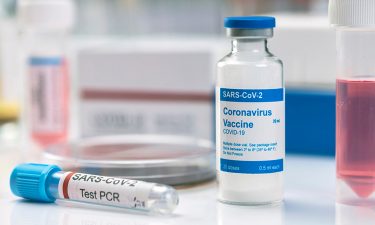Regulatory response to the COVID-19 pandemic
Posted: 2 December 2020 | Dr Ash Ramzan (Woodley BioReg) | No comments yet
Dr Ash Ramzan, founder and principal consultant at Woodley BioReg, discusses how the COVID-19 pandemic has forced regulatory processes to adapt, focusing on the regulatory flexibilities introduced by the UK’s MHRA.


Due to the nature of pharmaceutical drugs and medical devices and their effect on the user, regulatory bodies are typically conservative when making changes to the regulatory process. However, the COVID-19 pandemic has required unprecedented levels of flexibility to enable potentially life-saving treatments to be rapidly assessed and developed. The UK’s Medicines and Healthcare products Regulatory Agency (MHRA), along with the European Medicines Agency (EMA) and US Food and Drug Administration (FDA) shortly thereafter, took proactive steps to provide a framework for potential leads.
The MHRA operated a triage system during the initial few weeks of the pandemic to pre-evaluate potential products, suppliers and leads. In conjunction with the UK Cabinet Office and the Department of Health and Social Care, the regulator guided those they identified as potentially viable leads through formal assessments via structured online Q&As.
To accelerate the approval of drugs and devices in response to COVID-19, the MHRA issued regularly updated guidance on flexibilities in relation to the normal process. This included expedited reviews of clinical trials, as well as less rigorous reporting and the use of adaptive clinical trials. Routine inspections were halted or replaced with desktop reporting, reduced testing was implemented for imported products to prevent stockpiling and reviews of licenses to add additional Qualified Persons (QPs) were prioritised.


Advice in relation to COVID-19 enquiries, ie, for personal protective equipment (PPE), tests and equipment, was hastened and the provision of exceptional use certifications for devices such as continuous positive airway pressure (CPAP) machines and ventilators meant that critical items were not delayed. The MHRA also extended the implementation of the new medical device regulations (MDR) for 12 months. The regulator also accelerated assessments of variations and licence applications for medicines, as well as extending the implementation dates for other key regulatory changes to minimise the impact on manufacturers. There were also other changes, including the relaxation of some of the requirements for pharmacovigilance, good manufacturing practice (GMP)/good distribution practice (GDP), hospital blood banks, licencing and Request for Information (RFI) responses.
While these changes may seem minor and relatively insignificant in terms of their outward appearance, they are significant and ground-breaking in terms of the conservative approach usually taken by the regulator. Under normal circumstances, regulatory changes can take up to five years to implement but were actioned within a matter of weeks in response to the COVID-19 crisis. However, as these changes are relaxations in the normal operating parameters they have been easier to implement than new regulations.
It is anticipated that the flexibilities introduced by MHRA will be rescinded as the situation around the control and mitigation of the effects of the pandemic becomes more normalised. While there will be some in the industry that will seek extensions and potentially the permanent implementation of some of these changes, all regulators (including the MHRA) have been clear that these flexibilities are time-limited. Furthermore, the COVID-19 operating standards and procedures are not sustainable as the MHRA has had to halt or slow its usual activities and the implementation of previously planned changes during this period. Pre-COVID operations will now need to be restarted to allow the agency to provide the level of support expected by the industry.
The temporary changes in regulations have had a significant impact on the development of treatments and products, with high profile examples including ventilators, PPE and clinical development programmes to re-purpose existing molecules. However, the changes have had the largest impact on the development of a vaccine to prevent coronavirus infections. The MHRA’s involvement in drastically shortening the development time from 15 years plus to potentially just a few years has been critical.


The approval process for a vaccine will hinge on the MHRA’s acceptance of the clinical data and safety profile. While the risk-to-benefit ratio may not be ideal, there will be a lot of pressure from all sides to ensure any deficiencies are addressed pragmatically and quickly. The main areas for concern will be side effects and adverse reactions (known and unknown) and their potential severity. The number of subjects in the trials is very small compared to the potential recipient population, so any adverse effect will need to be carefully scrutinised as part of the approval process.
The development of medicines is traditionally a slow-moving sector and while change is possible, there has to be strong external forces for it to happen quickly. This is exactly what has happened during the COVID-19 pandemic, where regulators have encouraged the pharmaceutical and medical device industry to engage in a collaborative manner. This is not sustainable after the pandemic has subsided as the traditional role of the regulator is to regulate and ensure the safety of public health. This level of collaborative flexibility will only occur again when there is a similar situation of unmet clinical need and urgency. With hope, this will be highly unlikely in our lifetimes.
The pandemic has also generated more public and government awareness of the importance of the life sciences sector. Hopefully, this will ensure the sector receives adequate funding, so the UK can retain its place as a world leader in this industry. However, the COVID-19 outbreak has also highlighted the impact of Brexit, where fewer manufacturers want to base their development and registration activities in the UK, as opposed to the EU. What this might mean for the industry remains to be seen.
About the author
Dr Ash Ramzan is the founder and principal consultant at regulatory consultancy Woodley BioReg and has over 20 years of international experience within the pharmaceutical and biopharmaceutical industry.
Razman has held a number of senior positions in product and clinical development, manufacturing to cGMP compliance, analytical development, quality control and assurance and regulatory affairs.
Related topics
Drug Manufacturing, Drug Safety, Good Distribution Practice (GDP), Good Manufacturing Practice (GMP), Regulation & Legislation, Therapeutics, Vaccines, Viruses
Related organisations
European Medicines Agency (EMA), UK Department of Health and Social Care (DH), UK Medicines and Healthcare products Regulatory Agency (MHRA), US Food and Drug Administration (FDA)








